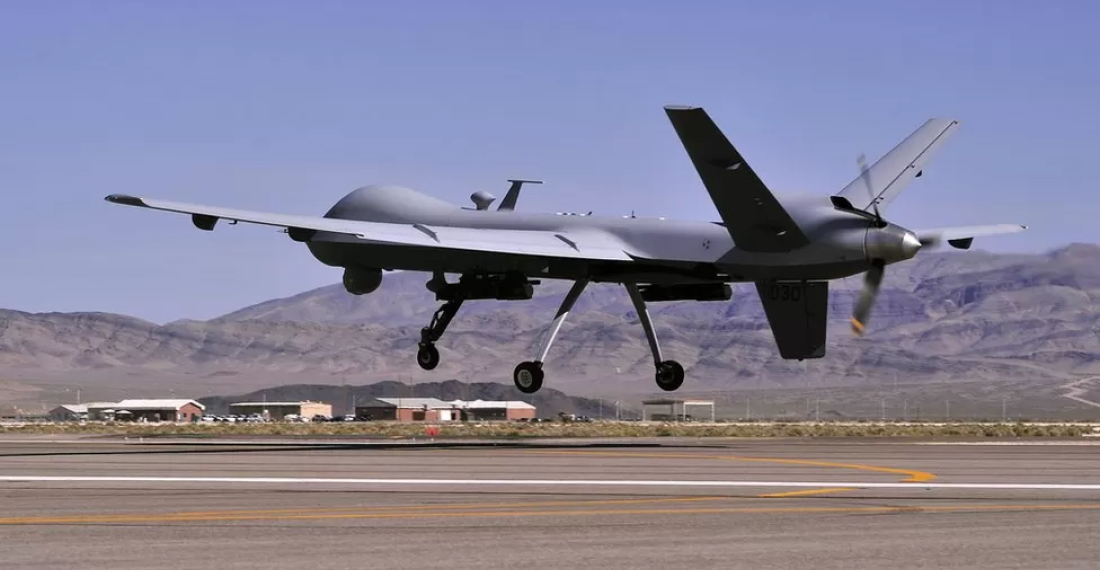A Russian Su-27 fighter jet has collided with an American MQ-9 Reaper drone over the Black Sea on Tuesday (14 March). The collision rendered the drone "unflyable" according to the Pentagon, forcing the U.S. to crash the drone into the sea.
Before the collision, Russian jets are said to have dumped fuel into the path of the drone which the US says was in international airspace. The confrontation between the drone and the fighter jet is said to have lasted between 30-40 minutes, with the collision happening at 07.03 CET.
The collision occurred approximately 200km south of Ukraine's southern port city of Odesa. Russia has denied its two Su-27 fighter jets made any contact.
In a statement, U.S. Air Force General James Hecker, commander of U.S. Air Forces Europe and Air Forces Africa, said "Our MQ-9 aircraft was conducting routine operations in international airspace when it was intercepted and hit by a Russian aircraft, resulting in a crash and complete loss of the MQ-9."
"In fact, this unsafe and unprofessional act by the Russians nearly caused both aircraft to crash," Hecker said.
The U.S. uses MQ-9 Reapers for both surveillance and strikes and has operated the drones in a variety of locations, including in the Middle East and Africa. The UK and France are two countries that also fly Reapers.
Russia denies all wrongdoing
On its part, Moscow denied causing the drone to crash.
"As a result of sharp manoeuvering... the MQ-9 unmanned aerial vehicle went into uncontrolled flight with a loss of altitude and collided with the water surface," the Russian Defense Ministry said in a statement. It added that the two Russian jets had no contact with the U.S. aircraft and did not use their weapons.
The Defense Ministry also called the drone an "intruder", and argued that it was heading toward Russia's border. Air Force Brig. Gen. Pat Ryder told reporters during a Pentagon briefing that the drone was operating in international airspace over international waters.
The incident is the first direct US-Russia confrontation since Russia launched its full-scale invasion of Ukraine on 24 February 2022. The key question is whether the collision was indeed deliberate, which could amount to an escalation between Washington and Moscow.






